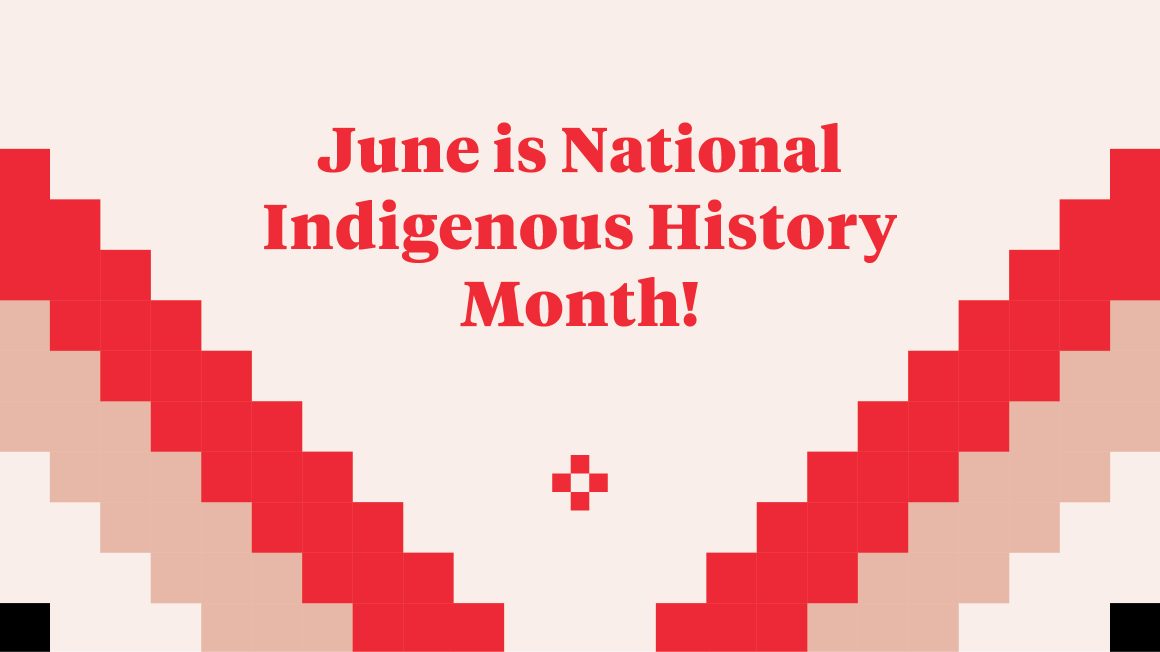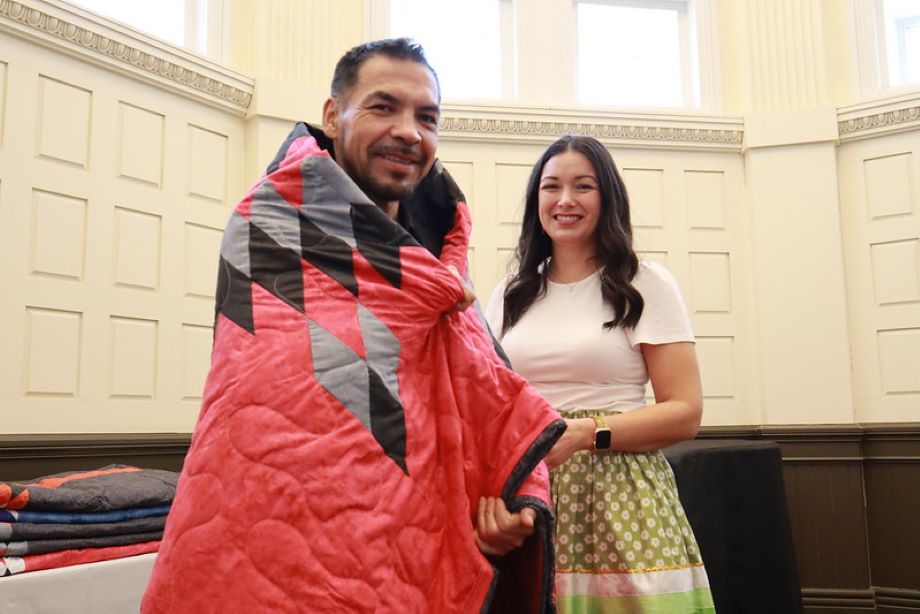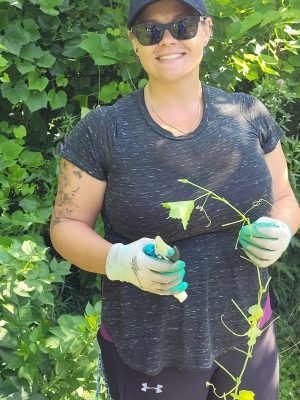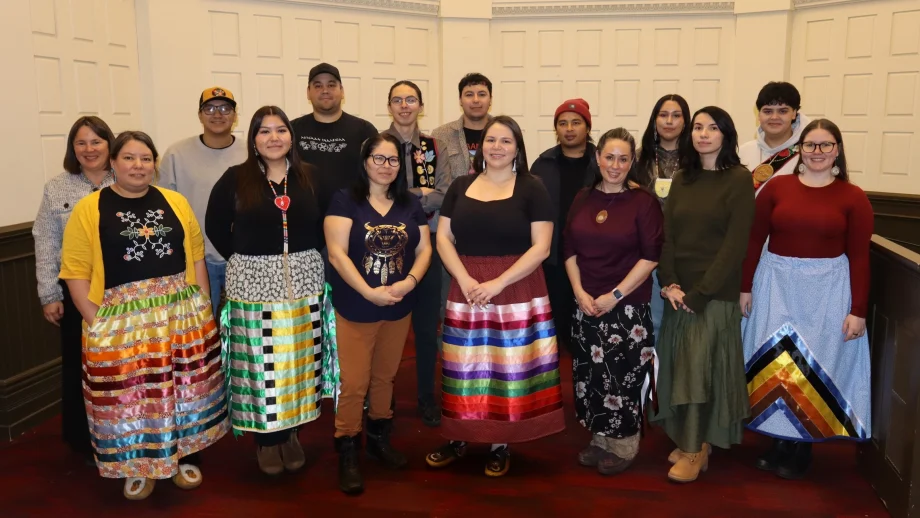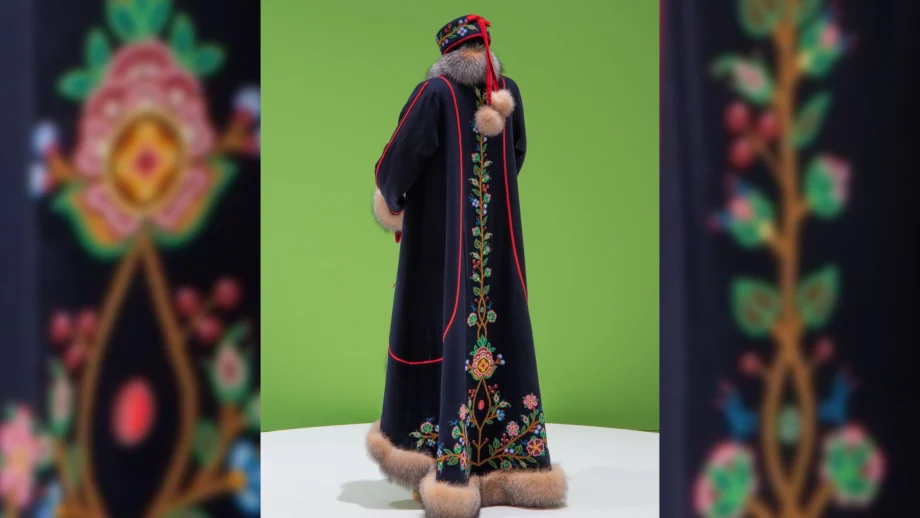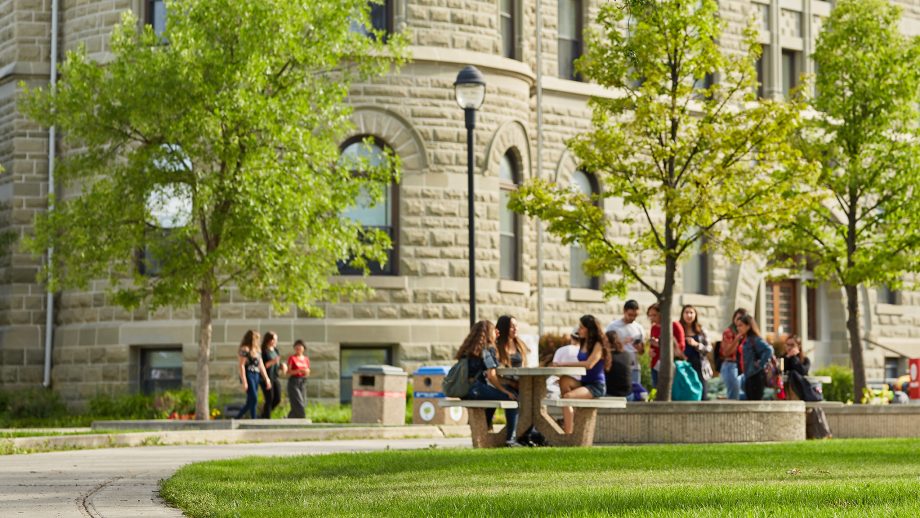The University of Winnipeg is proud to recognize and celebrate National Indigenous History Month in June.
The University of Winnipeg is located on Treaty One Territory and the National Homeland of the Red River Métis, in Wiiniibak, Manido Abi. We acknowledge these are the ancestral lands of the Anishinaabeg, Anisininew, Ininiwak/Nehethowuk, Oceti Sakowin/Dakota Oyate, and Michif (Métis) Peoples, that our water is sourced from Shoal Lake 40 First Nation in Treaty Three Territory, and that most of our hydro-electricity comes from Treaty Five Territory in northern Manitoba. The University is committed to the ongoing work of ensuring Indigenous knowledges and perspectives are honoured, and to participating in Reconciliation.
“This month is a time for the campus community to acknowledge, honour, and celebrate the history, culture, resilience, diversity, and significant contributions of Indigenous Peoples,” said Dr. Chantal Fiola, AVP, Indigenous Engagement. “As can be seen below, there are many individuals and units across UWinnipeg that are working hard to uplift and celebrate Indigenous community, and make strides towards truth and reconciliation, not just in the month of June but throughout the year. I express my gratitude to everyone at UWinnipeg who is engaged in these meaningful efforts!”
Here are some developments from the campus community to celebrate from the past year.
The University of Winnipeg has updated its land acknowledgement and will hold a workshop June 3 at 11 a.m. in 2M70 where all members of the campus community are welcome to learn more about it and how to craft their own individual acknowledgements. Staff and faculty are also encouraged to include a shortened form on their e-signatures.
Eleven Indigenous students interested in graduate studies participated with 14 faculty research mentors in the Indigenous Summer Scholars Program.
UWinnipeg welcomed over a thousand children from nine different schools in Winnipeg’s inner-city, north end, and from Sagkeeng and Eagle Lake First Nations, for STEM Days, hosted by the Wii Chiiwaakanak Learning Centre and Faculty of Science.
This year UWinnipeg celebrated the 20th annual Graduation Pow Wow where Indigenous grads were celebrated and gifted star blankets in honour of the anniversary. The event featured a Red Dress Special in honour of Red Dress Day, and included a ceremony to honour graduates who are family members of MMIWG2S+, hosted by Giganawenimaanaanig (also known as the Manitoba MMIWG2S+ Coalition).
UWinnipeg hosted the Re-claiming Métis Ethics: Beyond OCAP and Towards Métis Sovereignty conference, a scholarly discussion with academics and community members on the historical, current, and future perspectives of Métis ethics.
Emerging and established Indigenous leaders at UWinnipeg were celebrated at the 2025 Honouring Indigenous Achievement Awards. This important annual event recognizes the achievements of Indigenous students, faculty, and staff. Eleven individuals—undergraduate and graduate students, staff, and faculty—were presented with an award and a star blanket made by Corey Sanderson.
Les Femmes Michif Otipemisiwak (LMFO) allocated King Charles III Coronation Medals to three UWinnipeg Métis faculty who have demonstrated ongoing efforts to advance the well-being of Métis women, 2SLGBTQ+ individuals, and gender-diverse kin. Dr. Chantal Fiola, Dr. Laura Forsythe, and Dr.Yvonne Vizina, were flown to Ottawa to receive their awards.
Eight new Indigenous faculty members joined the University across the Faculty of Arts, Faculty of Science, Gupta Faculty of Kinesiology and Applied Health, Faculty of Business and Economics, and Global College. The hire is part of a larger effort to advance Reconciliation and increase BIPOC faculty representation at UWinnipeg. Some of these new faculty members started with UWinnipeg in the fall 2024 term, and some in the following winter term.
These new faculty members were celebrated with a welcome feast. The University was honoured to have both the Hon. Renée Cable (BA 08), Minister of Advanced Education and Training, and the Hon. Tracy Schmidt, Minister of Education and Early Childhood Learning join the celebration.
The Faculty of Education connected student teachers with rural and northern schools, past the city’s perimeter. Student teachers visited a growing list of communities engaged in the program, including Gypsumville, Skownan First Nation, Waterhen, Nelson House, Red Sucker Lake, Wanipigow, and most recently, Shoal Lake 40.
Dr. Laura Forsythe and UManitoba’s Dr. Lucy Delgado will examine the health and wellbeing outcomes for Métis women and Two-Spirit/Indigiqueer (2S/IQ) people who participate in Métis-specific spaces. This research is part of a Canadian Institutes of Health Research (CIHR) grant valued at $1,017,452.
The University of Winnipeg is proud to celebrate the achievements of the 114 Métis students who were awarded Louis Riel Bursaries during the 2024-25 academic year. The bursaries are valued between $1,300 and $2,000.
The Faculty of Education and Winnipeg School Division presented Dr. Niigaan Sinclair’s lecture, What does it mean to live here? What does to mean to teach here? in March.
Nii Ndahlohke: Boys’ and Girls’ Work at Mount Elgin Industrial School 1890-1915 and Nii Ndahlohke / I Work, an associated art exhibition at Art Windsor-Essex, received a 2024 Community Impact Award from the Association of Tribal Libraries, Archives and Museums (ATLAM). The exhibition also won an Exhibition of the Year Award at the 47th annual Galeries Ontario Galleries (GOG) Awards.
UWinnipeg’s Indigenous Identity Working Group (IIWG) released its report, First Nations, Métis, and Inuit Perspectives on Identity, Citizenship, and Safeguarding Opportunities: What We Heard Report, in December. The group was formed to address the complex issue of Indigenous identity fraud, which has been impacting post-secondary institutions across Canada.
Dr. Mary Jane McCallum launched Brown Tom’s Schooldays by Enos Montour. Brown Tom’s Schooldays tells the story of life in a residential school from the point of view of a young boy. The book was originally self-published in 1985 and was drawn from Montour’s own experiences at Mount Elgin Indian Residential School between 1910 and 1915. The title is a turn on the 1857 Thomas Hughes novel, Tom Brown’s Schooldays.
Gallery 1C03 organized UWinnipeg’s first-ever Indigenous Makers Market on Thursday, November 28, in partnership with the Office of Indigenous Engagement, the Indigenous Student Services Centre (ISSC), and the Indigenous Students’ Association (ISA).
UWinnipeg held the second annual Blaikie Knowles Woodsworth Lecture his year’s lecture, Culture, Spirituality and Compassion: Centering Indigenous Wisdom in Colonial Spaces featuring speakers Niigaanwewidam Sinclair, katherena vermette, and Sheila North, moderated by Dr. Chantal Fiola.
Sheila North joined UWinnipeg as Executive Director, Indigenous Engagement.
A land-based learning course in Spirit Park Community Gardens was joined by Elder Audrey Logan, a Neheyow, Métis knowledge keeper, forager, and food grower. The Indigenous Food Systems course helps preserve and promote Indigenous knowledge of traditional recipes and land-based lifestyles.
Indigenous undergraduate students who spent the summer conducting research alongside faculty mentors gathered to share their discoveries, experiences, and plans for further study during the eighth annual Indigenous Summer Scholars Program (ISSP) closing colloquium.
A total of 258 Grades 1-8 students attended the Indigenous STEAM Summer Camp. Some of the younger participants got to experiment in a lab for the first time, while older children got a better sense of what they may want to study in university.
The Pathway to Graduate Studies (P2GS) received three years of new funding from the Government of Canada’s PromoScience program, which means more Indigenous students will get the chance to conduct research at UWinnipeg.
The Manitoba Indigenous Tuberculosis History Project (MITHP), led by Dr. Mary Jane McCallum, won the Resources and Educational Materials Award from the Association of Manitoba Archives for its Missing Patient Research Guide and Video Modules.
The Community-Based Research Training Centre (CBRTC) held its second annual Community-Based Research (CBR) Summer Institute at the Aabijijiwan New Media Lab and Merchants Corner.
Two Master of Arts in Indigenous Governance thesis defenses showcased important research: Anna Neil’s Land as a Teacher: Indigenous food knowledges and perspectives from Long Plain First Nation, and Maria Belen Gallegos Espinel’s Indigenous knowledge and tourism on protected areas under constitutional Sumak Kawsai in Ecuador: Policies and legislation.

